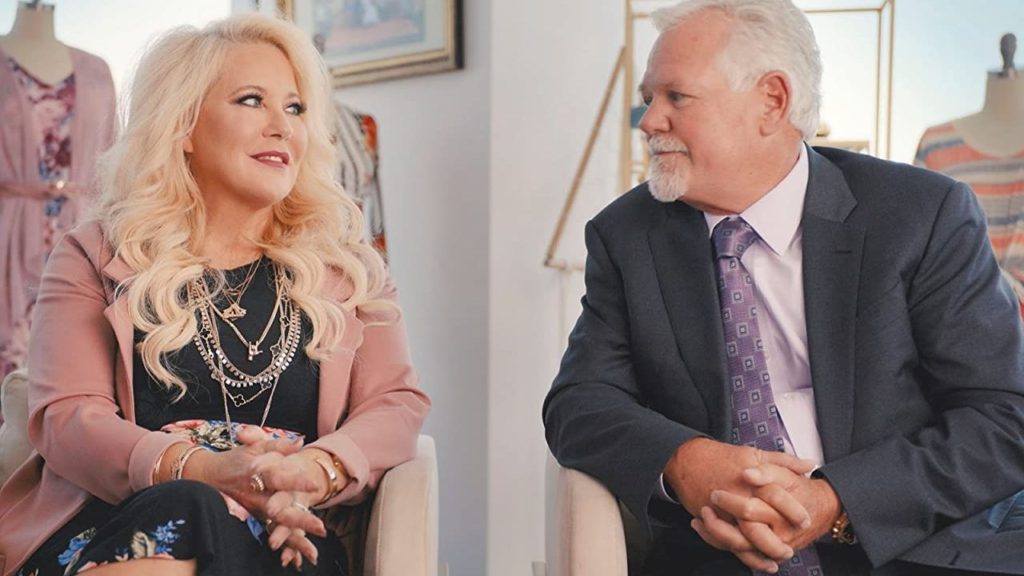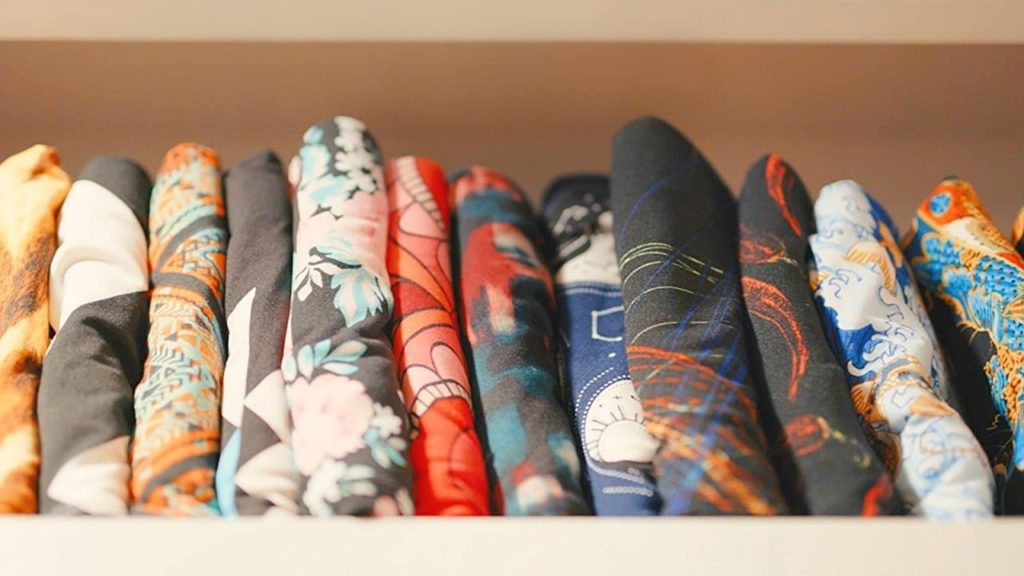All of us think that we’re too smart to fall for scams, or pyramid scheme, or emails from exiled Nigerian Princes. But what if the pyramid scheme didn’t actually start as a pyramid scheme? What if, like the proverbial frog that is boiled slowly, you don’t notice the pyramid scheme forming around you? What if the founders of the pyramid scheme set out to start a legitimate business and suddenly found it evolving to be a scam? Would you notice it then?
LuLaRich Dad, LuLaPoor Dad

LuLaRich is a new four part documentary series on Amazon Prime that chronicles the ups and downs of fast fashion brand LuLaRoe and how it went from a “skirt party” sales model, to a billion dollar organization in just a few years. This isn’t a documentary that sets out to chronicle their epic rise and tragic fall. LuLaRoe is still very much around today, despite dealing with several lawsuits, a social media backlash, and losing more than half of their “retailers.”
LuLa Roe is still out there hocking their wares. Maybe that’s why the founders of the brand, DeAnne and Mark Stidham agreed to be part of this documentary.
LuLaRich is not a take down of a corrupt organization. The series takes a look at the beginnings of the company from the mouths of the founders themselves, and speaks to many employees of the company, both current and former, to get a picture of what happened, and how it came to be perceived the way it currently is. Because these days, LuLaRoe is seen as a scam.
Ain’t No Party Like a Tupperware Party

If you didn’t know, LuLaRoe is a brand of women’s clothing that started off life as a direct selling business, selling products like leggings, and skirts, and tops direct to consumers at face-to-face pop-ups or parties, much like the Tupperware parties of the 50s and 60s. With the advent of Facebook Live, the physical Tupperware parties started to move online. This created a boom industry of women buying clothing items that were comfortable and affordable from people they knew, from the comfort of their own laptops, iPads, and mobile phones, earning LuLaRoe $1 billion dollars in sales from over 80,000 independent distributors.
All, however, was not rosy as predatory internal practices, merchandise quality control, and problematic refund policies eventually brought civil lawsuits and other litigations to the doors of LuLaRoe.
The Company You Keep

The documentary lays all of this out to bare, while also having the input of the two founders themselves. A lot is said here about whether or not the couple (and eventually their 14 children) were qualified to manage an organization of this size. We find out how LuLaRoe managed its employees and independent distributors, and the less than savory ways in which they may have encouraged the purchasing of inventory. We learn how distributors, all women, were brainwashed by the company to be a lot less empowered than they actually were. And what makes LuLaRich so compelling is that all of this doesn’t come from the voice of the filmmakers but from both the victims and the perpetrators.
Unlike Netflix’s Bob Ross documentary, LuLaRich directors Jenner Furst and Julia Willoughby Nason were able to take a more balanced approach to their series, and that comes from the fact that the two people at the centre of the scandal were able to tell their side of the story. LuLaRich is by no means a puff piece, or an ad for the brand, or a way for the Stidhams to wipe away the problems central to the LuLaRoe lawsuits.
Like any good journalistic piece, the Stidhams were given the the opportunity to tell their side of the story, and, like with every good journalistic piece, LuLaRich allowed them to dig a deeper hole and incriminate themselves even more.
LuLaRoe do not come off well in this. There are stories of how the brand encouraged women to sell their breast milk in order to buy their first batch of products. Marriages have fallen apart. Women were pushed to bankruptcy. And directors Furst and Nason were able to tread that fine line of letting the Stidhams have their say, while also using archival footage of training sessions, and court room proceedings, to debunk and counter their claims.
LuLaRoeRowRow Your Boat

LuLaRich lays out the fairly straightforward argument that LuLaRoe did not do right by its employees or its distributors. The documentary allowed the Stidhams to have their say, to try and defend or explain away what they did, but was able to pair all of that with either proof that the Stidhams were lying, or first hand accounts that disagreed with everything that they were saying.
LuLaRich is a compelling watch that asks you a different question. I wasn’t asking whether or not the Stidhams knew what they were doing to their distributors and partners, but rather, when they knew what they were doing.









Follow Us